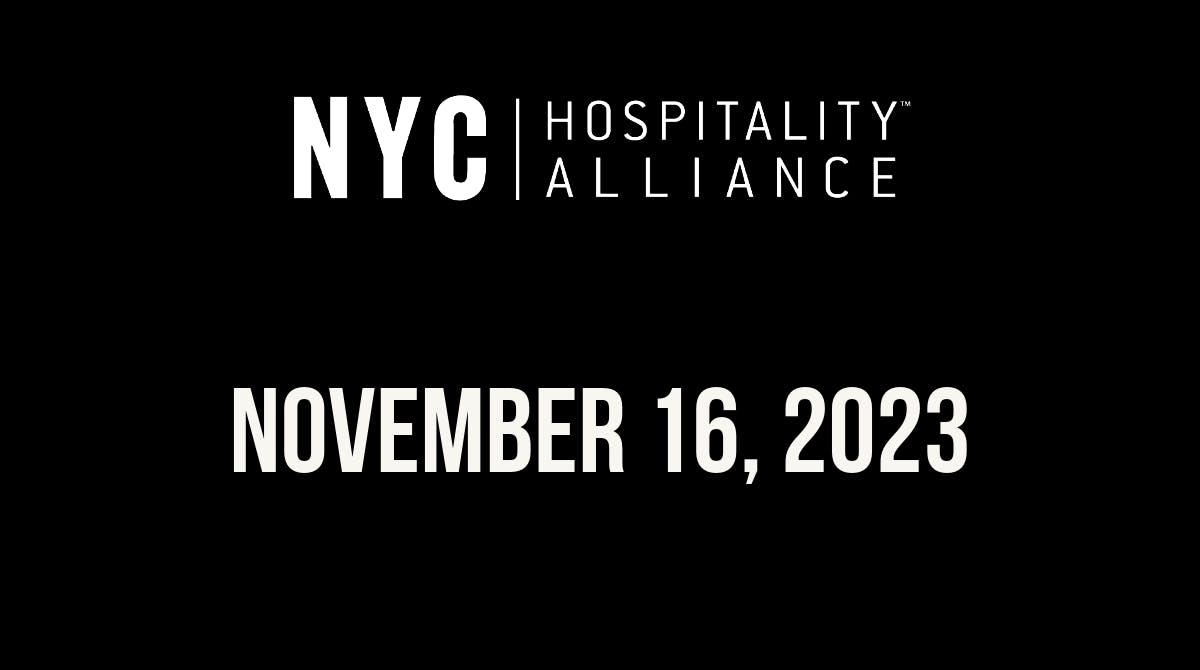6 steps to 86 the bounty hunter noise violations

Robert and Max Bookman of Pesetsky & Bookman, the NYC Hospitality Alliance's general and legislative counsel, have the following update for members concerning bounty hunter noise violations:
As you know from reading past updates, the NYC Hospitality Alliance is actively working with the City Council and Mayor Adams’ administration to put an end to the ongoing bounty hunter noise violation abuse. A variety of solutions are in the works. In the meantime, if your business receives a bounty hunter noise violation and you decide to challenge the violation at a hearing, here are six basic strategies that other businesses in your position have been following:
1. Reschedule the hearing. Those who wish to challenge bounty hunter noise violations are entitled to a hearing before the New York City Office of Administrative Trials and Hearings (OATH). When the bounty hunter issues you a summons, it comes with a preselected hearing date. But OATH's rules allow you to reschedule the hearing to a date that works better for your schedule. For more information on how to reschedule, visit OATH's rescheduling page. Do not wait until the day of your hearing to request a rescheduling, it will be too late!
2. Request discovery. OATH's rules give you the right to receive in advance a list of witnesses and copies of any evidence that the bounty hunter intends to introduce at the hearing. We call this "discovery." You must request discovery in writing sent to the bounty hunter at the contact information provided on the summons, and the bounty hunter must receive your request at least five business days before the hearing. If the bounty hunter does not respond to your request before the hearing, or does respond but you still need an opportunity to review the response, you may attend the hearing and ask the judge for an adjournment.
3. Do not default. Bounty hunter noise violation hearings are being held remotely by phone. You need a hearing-specific PIN to log into the OATH hearing-by-phone system. Under OATH's rules, it is your responsibility to request the PIN, and you must do so at least three business days before the hearing date. If you do not, there will be no way for you to log into your hearing, and you will lose by default. Also, if you do get a PIN but forget to log into your hearing on the hearing date, you will lose by default.
4. Be in front of a computer. Even though the hearings are conducted by phone, you and the bounty hunter will have an opportunity to show the judge your evidence via email while the hearing is taking place. It is therefore critical that you do the phone hearing in front of a computer.
5. Cite recent OATH decisions. OATH has an Appeals Unit, which decides appeals and sets precedent for all OATH hearings. OATH's Appeals Unit has been busy writing decisions that limit these bounty hunter noise summonses. Do not assume that your judge is up to speed on all of the Appeals Unit decisions. Many businesses in your position have showed the following recent important Appeals Unit decisions to the judge in their hearings:
- Detering v. Jackson Hole - The section of the law that the bounty hunters cite restricts commercial advertising noise on the sidewalk. The Jackson Hole decision makes clear that a business that is simply playing background music for the enjoyment of its guests is not advertising, even if the music can be heard on the sidewalk.
- Eisenberg v. Jasper's - In this case, the Appeals Unit held that a restaurant that played background music to its outdoor dining space is not advertising, even though passersby could hear the music.
- DEP v. Dalton's - In this case, the Appeals Unit held against a restaurant that was playing music from external (outdoor) speakers onto the sidewalk. The restaurant claimed the music was for their outdoor dining area, but they had no outdoor dining area set up at the time! It was completely disassembled and stacked against the side of the building. If the bounty hunter tries to use this case against you, you can rebut it by providing proof that your outdoor dining area was set up at the time.
6. Request a "zero fine." In August, a division of OATH released a resolution stating that in these bounty hunter cases, a business that has been found in violation by the judge may be eligible for a $0 penalty if the business shows proof at the hearing that it corrected the issue. Not every judge is aware of this resolution, so you may wish to have a copy ready to email the judge. Similarly, not every business is able to show proof that the issue was "corrected." But some are. For example, if you had music playing from external (outdoor) speakers and you had no outdoor dining area, you may wish to provide photos showing that you have removed the speakers. If the judge gives you a "zero fine," it means that you pay nothing, and the bounty hunter gets nothing.
This update provides general information about how some businesses are approaching bounty hunter summons hearings. It does not constitute legal advice and you should not rely on it as such. The Alliance strongly suggests that you speak with your attorney before challenging a bounty hunter summons at a hearing.
